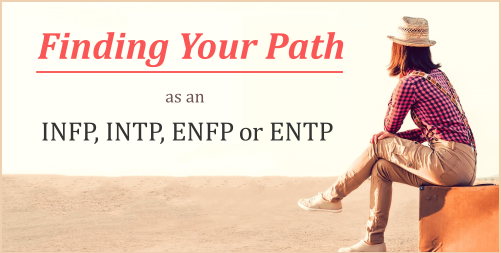We often talk about the judging (J) – perceiving (P) preference as though it’s a unidimensional concept. Newcomers to the Myers-Briggs® are particularly apt to conjure crude interpretations of these terms based on their colloquial meanings. They may, for instance, envision judging types as critical and judgmental, disposed to jump to conclusions. This offers a rather negative view of what it means to be a J type, making the label—”judger”—seem a bit unfortunate for those unfamiliar with terminology.
Our ordinary understanding of the word perceiving, while more nebulous, is surely less likely to evoke unfavorable first impressions. Everyone knows what a judge or judgmental person is, but there is no strong precedent ready to inform our view of a perceiver. Perhaps the closest thing we have is the notion of being perceptive, which, in common parlance, is almost always used in a complimentary sense (e.g., “You’re so perceptive.”). I therefore surmise that, given the choice, typology newcomers will be inclined to prefer the P over the J label.
Admittedly, one could argue that the initial impressions spawned by these terms is irrelevant because they are defined more specifically within the Myers-Briggs® taxonomy. While I suspect it somewhat difficult to prevent conflations and cross-pollination between their common and special definitions, I am willing to grant this point and move forward.
If we look more closely at the ways in which the J-P domain is used and understood in typology circles, we learn that it is actually quite multifaceted, extending well beyond our initial impressions. One approach to understanding the primary ways this dichotomy is conceived in the type community involves analyzing J and P types according to their outer and inner characteristics. Such an approach is not only useful for type diagnostics, but also for elucidating inner-outer personality dynamics.

Outer Presentation of Judging (J) & Perceiving (P) Types
In my book, My True Type, I characterize judgers as:
- Outwardly firm, direct, and opinionated
- Undeterred from directly expressing their views or wishes (especially EJs); utilize declarative statements
- Conveying a sense of closure, seriousness, or formalness
Perceiving types, by contrast, tend to be:
- Outwardly open, receptive, and adaptable
- More reluctant to state their views / desires directly, thus eschewing potential conflict or disquieting feelings
- More casual in their presentation and manner
These characteristics highlight the different ways Js and Ps present and engage with others. We should also note that, in personality circles, the J-P preference has long been used to demarcate a type’s extraverted (i.e., outward) presentation. Namely, it indicates whether a type’s preferred extraverted function is a judging function (Te or Fe) or a perceiving function (Ne or Se); this explains how a type’s J-P preference relates to its functions. Compare, for example, the respective functions of the INFJ and INFP:
INFJ
Dominant: Introverted Intuition (Ni)
Auxiliary: Extraverted Feeling / Fe (J function)
INFP
Dominant: Introverted Feeling (Fi)
Auxiliary: Extraverted Intuition / Ne (P function)
Since INFJs’ predominant extraverted function is a judging function (Fe), they are classified as J types. Likewise, because INFPs’ use Ne as their preferred extraverted function, we consider them P types.
Inner Attitudes toward Knowledge, Certainty & Predictability
It is often said that J types prefer closure. This notion may derive from their tendency to plan ahead, as well as from their firm and decisive outer presentation. Js can seem reluctant to change their minds and tend to display greater ideational consistency over time than their P counterparts. SJs, in particular, marked by their affinity for the “tried and true,” are known to routinely reference pre-established beliefs and practices to inform their actions and decisions.
Generally speaking, J types are more confident than Ps when it comes to the prospect of certain knowledge. Namely, Js experience a sense of knowingness about things (e.g., what is true, what is right, etc.) and many of their convictions seem to weather the test of time. One reason for the stability and consistency of their beliefs is Js are more impervious to exceptions and outliers that might contravene their established worldview. To be clear, this tendency toward ideational closure and certainty is not necessarily a conscious choice, but is simply the way the J mind works. Thus, being a J is probably more of a brute neuropsychological fact than a volitional preference.
A natural correlate to experiencing the world as knowable is considering it predictable. Now, believing in predictability needn’t, at least in theory, be paired with a commensurate desire for predictability. Nonetheless, it appears that Js do have this sort of proclivity, which is why they are often described as planners. From the J perspective, careful forethought and planning is apt to procure a more favorable outcome than haphazard sorts of approaches.
P types, by contrast, are often characterized as keeping their options open. As with J types, I would contend that this is not always a conscious choice or preference, but instead stems from the workings of the P mind. Indeed, there are a plenty of instances where Ps consciously want to make a firm decision (i.e., come to closure) but are foiled by undercurrents of doubt or uncertainty. On these occasions, we might say that the P mind is keeping its options open despite itself.
Running on an operating system that outputs uncertainty (or at least doesn’t engender certainty), Ps (especially NPs) tend to be more skeptical toward the prospect of certain knowledge than J types. This assumes, of course, that their attitude is reflective of the typical tendencies of their mind (e.g., doubting, questioning) rather than a J ideal toward which they are striving.
Ps who embrace the grayness and uncertainty of life may exhibit an attendant affection for mystery. If life is too complex or impenetrable to be predictable, then why not relish its capacity to surprise and entertain us? Why bother to make detailed plans that might impede the mysterious processes of life in each moment? Again, being a perceiver doesn’t always guarantee this sort of mindset, but it doesn’t seem an unreasonable response to a mind fashioned on P architecture.
Closing Remarks & Qualifications
As I discuss at length in My True Type, J-P issues are often more difficult to disentangle for introverts than for extraverts. This is due to the fact that the J-P nature of introverts’ dominant function is actually the opposite of their type’s J-P designation. If we harken back to our earlier INFJ-INFP comparison, we can see that INFJs’ dominant function, Ni, is actually a perceiving function, whereas INFPs’ dominant Fi is a judging function. Extraverted types don’t have this problem. Because they lead with an extraverted function and the J-P label happens to be based on a type’s preferred extraverted function, there is no discrepancy (e.g., an ENFP’s dominant function, Ne, is a perceiving function).
Not only is the naming of the types more confusing for introverts, but their subjective experience with J-P matters is often less salient and consistent. For instance, the fact that IJs lead with a perceiving function suggests they are apt to be more open and slower to reach closure than EJs. Similarly, IPs, in relying heavily on their introverted judging function, tend to be less spontaneous and “go with the flow” than EPs; IPs’ first preference involves following their own inner directive. For reasons such as these, I have suggested that the clearest examples of J-P character traits are most readily witnessed in extraverts. Want to understand perceiving? Study EPs. Judging? Observe EJs.
Despite its inherent challenges, I still consider the J-P dichotomy both valid and useful, even for introverts. Most of the general patterns still hold true for introverts, even if at times requiring a more discerning eye to spot them. While there is certainly far more that could be said about J-P differences and their manifestations in introverts and extraverts, I will refer readers to my previous work for further examination.
If you’re an INFP, INTP, ENFP or ENTP looking to better understand your personality, purpose, and life path, you’ve come to the right place. Not only have we written extensively about these types, but we’ve also developed an online course—Finding Your Path as an INFP, INTP, ENFP or ENTP—specifically designed to help you better understand your personality, identity, purpose, career path, and much more:
Unsure if You’re a J or P?
Learn More about Js & Ps:
My True Type: Clarifying Your Personality Type, Preferences & Functions (book)
